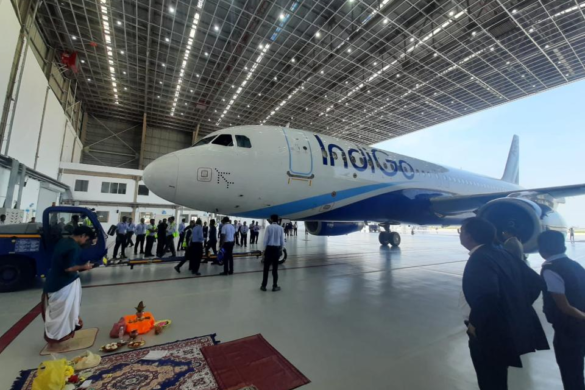Air Belgium, a prominent player in the aviation industry, has announced its decision to retire its two A330neo aircraft, citing ongoing engine troubles and unsuccessful negotiations with Airbus. This move marks a significant development in the airline’s operational strategy and underscores the challenges faced by carriers in maintaining fleet reliability.
The decision to ground the A330neo fleet comes on the heels of persistent issues with the aircraft’s engines, which have plagued Air Belgium’s operations and led to disruptions in service. Despite efforts to address these concerns through maintenance and repairs, the airline has been unable to achieve satisfactory performance levels, prompting the difficult choice to retire the troubled planes.
In addition to the technical challenges, Air Belgium has cited unproductive negotiations with Airbus as a contributing factor in its decision. The failure to reach mutually beneficial agreements regarding the ongoing support and maintenance of the A330neo fleet has further complicated the airline’s ability to operate the aircraft effectively.
The retirement of the A330neo aircraft represents a strategic pivot for Air Belgium as it seeks to realign its fleet and optimize operational efficiency. By phasing out the problematic planes, the airline aims to streamline its operations and focus resources on more reliable and cost-effective alternatives.
While the decision to retire the A330neo fleet may come as a disappointment to some stakeholders, it underscores Air Belgium’s commitment to prioritizing safety, reliability, and customer satisfaction. By proactively addressing the challenges posed by the troubled aircraft, the airline demonstrates a proactive approach to fleet management and a dedication to upholding industry standards.
Looking ahead, Air Belgium remains focused on its mission to deliver exceptional service and connectivity to passengers worldwide. With a renewed emphasis on fleet reliability and operational excellence, the airline is poised to navigate the complexities of the aviation landscape and emerge stronger in the face of adversity.
In conclusion, the retirement of Air Belgium’s A330neo fleet reflects the complexities and challenges inherent in the aviation industry. By confronting persistent engine problems and unproductive negotiations head-on, the airline demonstrates its commitment to maintaining the highest standards of safety and service. As Air Belgium charts a new course forward, the decision to retire the troubled aircraft paves the way for a more resilient and efficient operation in the years to come.


